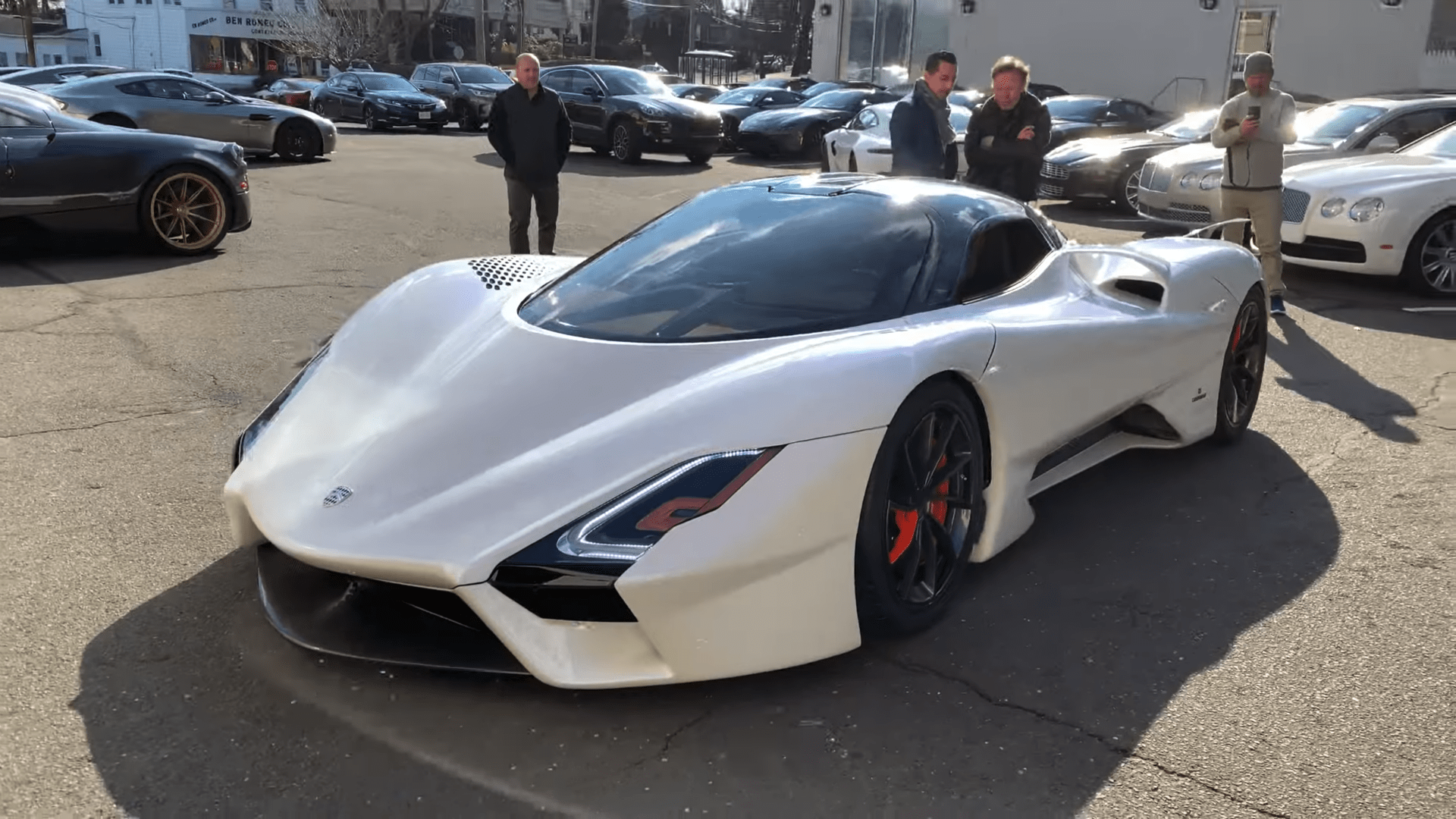

A prototype of SSC North America’s Tuatara hypercar has been recorded revving outside an upscale Connecticut car dealer.
The Tuatara is the long-awaited successor to SSC’s Ultimate Aero, which for three years held the record for fastest production car, reaching an independently-measured 256.18 miles per hour in 2007. SSC first showcased a concept Tuatara in 2011, but the company seemingly went dark for several years, leading many to write off the Tuatara as another vaporware car, never to exist in earnest.
But SSC surprised the world in August with the debut of a production-ready body for the Tuatara and finalized specifications with it. SSC says the Tuatara will use a 5.9-liter, twin-turbo, billet aluminum V8 with twin air-to-water intercoolers and a redline of 8,800 rpm. Promised power is 1,350 horses on 91 octane or 1,750 on E85. What does that sound like? Listen below.

There’s a reason why the Tuatara doesn’t sound like a normal, grumbly V8. Similar to cars like the McLaren P1, Ferrari 488 GTB, and Porsche 918 Spyder, the Tuatara’s engine uses a flat-plane crankshaft, as opposed to the cross-plane cranks found in cars like the Chevrolet Corvette or Ford Mustang GT. Flat-plane crank V8s are trickier to balance than cross-plane crank V8s, and are thus rarely seen in high-displacement engines, the largest available today being the 5.2-liter Voodoo unit in the Ford Mustang Shelby GT350 and GT350R.
But at 5.9 liters, the Tuatara’s engine is monstrous for a flat-plane crank V8 and can bite its thumb at the Voodoo without fear of embarrassment. SSC hopes that the technical marvel that is the 5.9 can combine with the Tuatara’s boasted drag coefficient of 0.279 (markedly better than many other hypercars of this decade) and a seven-speed automated manual to propel the Tuatara beyond the 300 mph barrier.
A carbon chassis and bodywork should ensure that the Tuatara isn’t a one-trick pony. With the rigidity these offer comes a dry weight of 2,750 pounds, which should translate to a curb weight just under 3,000 pounds. With a driver inside, the Tuatara’s power-to-weight ratio should exceed 1,000 horsepower per ton, possibly approaching 1,100. Even the space-grade Bugatti Chiron registers at less than 700 horsepower per ton, and the record-holding Koenigsegg Agera RS shy of 900.